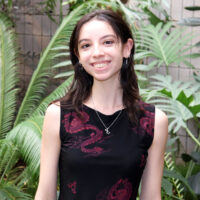
Investigating candidate enzymes for resin glycoside biosynthesis in the morning glory family
Resin glycosides (RGs) are a special class of acylsugars found across the Convolvulaceae (morning glory) family that have been found to play important roles in plants’ chemical defenses, bacterial and fungal inhibition, and allelopathic interactions. Two families of enzymes in particular – UDP-glycosyltransferases (UGTs) and BAHD acyltransferases (BAHDs) – are believed to be critical to their biosynthesis, however the specific proteins that participate are largely unknown. We investigated these protein families in Ipomea tricolor (Mexican morning glory) to further elucidate the biosynthetic pathways of RGs. To narrow down candidate UGTs from I. tricolor, we collected enzymatic substrate activity data from a broad range of studied plant UGTs and constructed a phylogenetic tree to demonstrate the substrate activities of candidate enzymes’ nearby relatives. From this analysis, we selected final candidates from clades demonstrating activity necessary for RG synthesis. BAHD candidate enzymes were purified and tested in enzyme assays with an acid acceptor and various acyl donors. Modified Acyl-CoA synthetase enzymes were expressed and purified in mutated E. coli to produce 2-methylbutyryl-CoA, a tested acyl donor, as it was not commercially available. Further experimentation will be done with candidate enzymes to be used in later RG pathway reconstruction efforts with the end goal of making RGs more accessible for agricultural, medicinal, and evolutionary research.
Coming into this REU program, I knew I wanted to study plants. I had experience with plant research, but none in genetics or molecular biology. I was stepping into new (and intimidating) territory by joining the Moghe lab! I was overwhelmed with the information and procedures I was learning and felt ashamed when I messed up. However, my mentor was patient and taught me how to deal with and prevent mistakes, which I’ve learned are critical skills for conducting research. I accepted that I will inevitably make a lot of mistakes, but to not let that dissuade me as a researcher. The information I learned has allowed me to understand plants from a new perspective I would have been too intimidated to explore on my own; this gives me the desire to broaden my horizons as a researcher, so I can explore new fields in the future with confidence.
